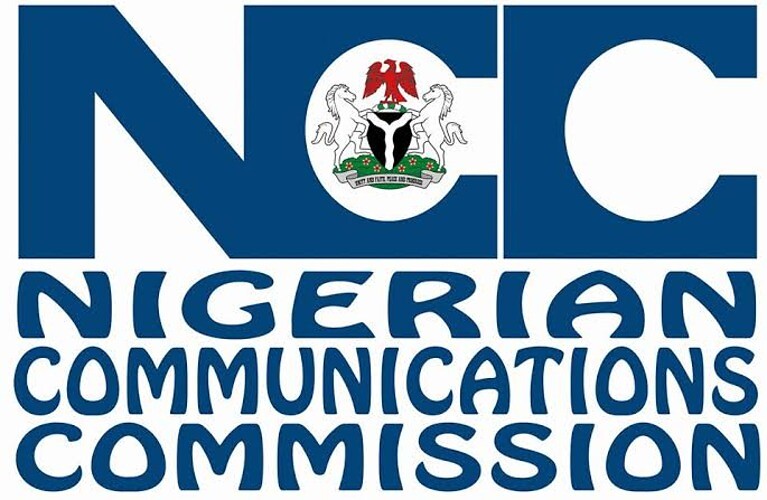- Government Organisation
- 423 Aguiyi Ironsi St, Wuse, Abuja 904101, Federal Capital Territory, Nigeria

NIGERIAN COMMUNICATIONS COMMISSION (NCC)
About
In the dynamic landscape of Nigeria’s telecommunications sector, one entity stands as a cornerstone of regulation, innovation, and connectivity: the Nigerian Communications Commission (NCC). Since its establishment in 1992, the NCC has been at the forefront of shaping the country’s communication infrastructure, fostering competition, and ensuring that Nigerians have access to reliable and affordable telecommunications services.
The Nigerian Communications Commission (NCC) serves as the regulatory body for the telecommunications industry in Nigeria. Established in 1992, the NCC has been pivotal in shaping the landscape of communication and connectivity within the country. With its mandate to foster a vibrant and competitive telecommunications sector, the commission plays a crucial role in ensuring that Nigerians have access to reliable and affordable communication services.
Over the years, NCC has earned a reputation as a foremost telecom regulatory agency in Africa. The Commission is hoping to catalyze the use of ICTs for different aspects of national development. The Commission has initiated several programs to help stimulate demand and accelerate the uptake of ICT tools and services necessary for the establishment of a knowledge society in Nigeria.
One of the primary objectives of the NCC is to promote fair competition among telecom operators while safeguarding the interests of consumers. This entails creating policies and regulations that encourage innovation, investment, and expansion within the industry, while also protecting consumers from unfair practices and substandard services.
Over the years, the NCC has been instrumental in driving the growth of Nigeria’s telecommunications sector. Through various initiatives and interventions, the commission has helped to increase access to telecommunication services across the country, particularly in rural and underserved areas. This has not only improved connectivity but has also contributed to economic development and social inclusion.
In addition to its regulatory functions, the NCC also plays a significant role in spectrum management, licensing, and monitoring of telecom operators. By efficiently allocating and managing the limited frequency spectrum, the commission ensures that there is sufficient bandwidth available for existing and future telecommunications services.
Furthermore, the NCC is actively involved in promoting digital literacy and awareness among Nigerians. Through educational campaigns and outreach programs, the commission aims to empower citizens with the necessary skills and knowledge to fully utilize the benefits of modern communication technologies.
To achieve its mandate, the Commission has put in place the necessary licensing and regulatory framework for the supply of telecommunications services.
Regulatory Leadership
At its core, the NCC serves as the regulatory authority overseeing the telecommunications industry in Nigeria. Tasked with promoting fair competition, protecting consumer interests, and facilitating industry growth, the commission plays a pivotal role in maintaining a level playing field for operators while safeguarding the rights of users.
Through robust policy frameworks and enforcement mechanisms, the NCC has been instrumental in driving innovation and investment within the sector. By establishing clear guidelines for licensing, spectrum allocation, and market conduct, the commission fosters an environment conducive to sustainable growth and development.
Expanding Access
One of the NCC’s primary objectives is to ensure that all Nigerians have access to affordable and reliable communication services. Recognizing the importance of connectivity in driving economic development and social inclusion, the commission has implemented various initiatives to expand access, particularly in underserved and rural areas.
Through programs like the Universal Service Provision Fund (USPF), the NCC has facilitated the deployment of telecommunications infrastructure in remote parts of the country. By subsidizing the costs of infrastructure development, the USPF has helped bridge the digital divide, bringing essential services like voice and internet connectivity to previously unconnected communities.
Promoting Innovation
Innovation is key to the growth and competitiveness of Nigeria’s telecommunications sector, and the NCC actively promotes a culture of innovation and technological advancement. By fostering an environment conducive to investment and entrepreneurship, the commission encourages the development and deployment of cutting-edge technologies and services.
Moreover, the NCC plays a crucial role in spectrum management, ensuring that the limited frequency spectrum is utilized efficiently to meet the growing demand for wireless communication services.
Through strategic allocation and monitoring, the commission maximizes the potential of the available spectrum, enabling operators to deliver high-quality services to their customers.
Our Mission
To support a market-driven communications industry and promote universal access.
Our Vision
A dynamic regulatory environment that ensures universal access to affordable and equitable service and supports the nation’s economic growth.
Our Guiding Principles
The Commission is driven by three guiding principles (Fair, Firm, and forthright) in carrying out its duties and functions as the National Telecommunications Regulator. These principles drive our Core Values.
Our Core Values
- Integrity
- Excellence
- Professionalism
- Responsiveness
- Innovation
- Commitment
Challenges and Opportunities
Despite its achievements, the NCC faces several challenges in fulfilling its mandate. Issues such as quality of service, cybersecurity, and regulatory compliance require constant vigilance and proactive measures to be effectively addressed. Additionally, the rapid pace of technological change poses both challenges and opportunities for the commission, necessitating continuous adaptation and innovation.
Summary
The Nigerian Communications Commission stands as a beacon of regulatory excellence and innovation in Nigeria’s telecommunications landscape. Through its leadership, the commission empowers connectivity, fosters innovation, and promotes inclusive growth, thereby advancing the country’s socio-economic development and positioning it as a leader in the digital age.
The NCC remains committed to its mission of promoting a vibrant and competitive telecommunications sector that serves the interests of all Nigerians.
By embracing innovation, fostering collaboration, and prioritizing the needs of consumers, the commission will continue to play a central role in driving Nigeria’s digital transformation and shaping the future of communication in the country.
Business Amenities
- Car Parking
- Funding: Federal
Contact Information
Opening Hours
Contact Business
Contact Business
Additional Information
Additional info

Subscribe now to get direct updates
Join Naijadirectory Newsletter











